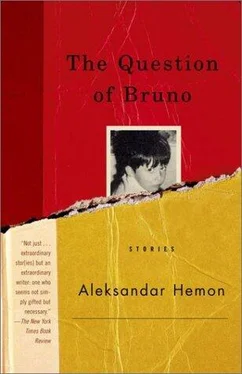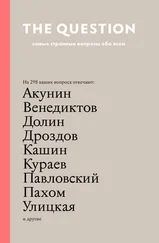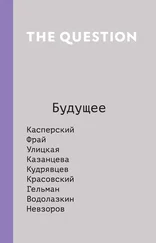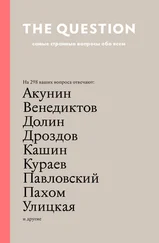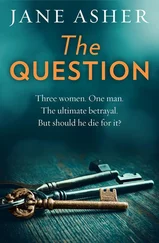11
Uncle Julius spoke: “We brought beekeeping to Bosnia. Before the Ukrainians came, the natives kept their bees in mud-and-straw hives and when they wanted the honey they would just kill them all with sulfur. My grandfather had fifty beehives three years after coming to Bosnia. Before he died, he was sick for a long time. And the day he died, he asked to be taken to the bees and they took him there. He sat by the hives for hours, and wept and wept, and wept out a sea of tears, and then they put him back into his bed and an hour later he died.”
“What did he die of?” Aunt Lyudmila asked.
“Dysentery. People used to die of that all the time. They’d just shit themselves to death.”
12
I went down the stairs and announced my thirst. Aunt Lyudmila walked over to the dark corner on my right-hand side — suddenly the light was ablaze — and there was a concrete box with a large wooden lid. She took off the lid and grabbed a tin cup and shoved her arm into the square. I went to the water tank (for that’s what it really was) and peeked over. I saw a white slug on the opposite wall. I could not tell whether it was moving upward or it was just frozen by our sudden presence. The dew on its back twinkled, and it looked like a severed tongue. I glanced at Aunt Lyudmila, but she didn’t seem to have noticed anything. She offered me the cup, but I shook my head and refused to drink the water which, besides, seemed turbid.
So they brought me a slice of cold watermelon and I drowsily masticated it. “Look at yourself,” Uncle Julius said. “You don’t want to drink the water! What would you do if you were so thirsty that you were nearly crazy and having one thought only: water, water! and there’s no water. How old are you?”
“Nine,” my mother said.
13
Uncle Julius told us that when he was in the Arkhangelsk camp, Stalin and his parliament devised a law that said if you were repeatedly late for school or missed several days with no excuse, you would get six months to three years in a camp. So, suddenly, in 1943, the camp was full of children, only a little bit older than I was — twelve, fifteen years old. They didn’t know what to do in the camp, so the criminals took the nicest-looking to their quarters and fed them and, you know (no, I didn’t), abused them. So they were there. They died like flies, because it was cold, and they lost their warm clothing, they didn’t know how to preserve or protect the scarce food and water they were allotted. Only the ones that had protectors were able to survive. And there was a boy named Vanyka: gaunt, about twelve, blond, blue eyes. He survived by filching food from the weaker ones, by lending himself to different protectors and bribing guards. Once — I think he drank some vodka with the criminals — he started shouting: “Thank you, Vozhd, for my happy childhood!” At the top of his lungs: “Thank you, Stalin, for my happy childhood!” And they beat him with gun butts and took him away.
14
“Don’t torture the boy with these stories. He won’t be able to sleep ever again.”
“No, let him hear, he should know.”
15
Then they sent Uncle Julius to a different camp, and then to another one, and he didn’t even know how much time or how many camps he passed through, and he found himself in Siberia. One spring, his job was to dig big graves in the thawing ground, take the dead to the grave on a large cart, and then stuff them into the grave. Fifty per grave was the prescribed amount. Sometimes he had to stamp on the top of the grave-load to get more space and meet the plan. He had big, big boots. One day they told him that there was a dead man in solitary confinement, so he pushed his cart there and put the corpse on the cart, and as he was pushing, the corpse moaned: “Let me die! Let me die!” I was so scared I almost died, I fell down and he kept moaning: “Let me die! I don’t want to live!” So I pushed the cart behind the barrack and I leaned over him. He was emaciated and had no teeth and one of his ears was missing, but he had blue, blue eyes. It was Vanyka! He looked much older, oh my God! So I gave him a piece of bread that I had saved and told him that I remembered him and this is what he told me.
16
They took him away and mauled him for days and did all sorts of things to him. Then they moved him to another camp and he had problems there all the time, because he would speak out again, despite his better judgment. He knew how to steal from the weaker and there were still men who liked him. He won acclaim when he killed a marked person, some Jew, after losing a card game. He killed more. He did bad, bad things and learned how to survive, but he could never keep his snout shut. So they sent him to the island where they kept the worst of the worst. The nearest guard was on the shore fifty kilometers away. They let the inmates rob and kill each other like mad dogs. Once a month the guards would come in, leave the food and count the corpses and graves and go back to their barracks by the sea. So one day Vanyka and two others killed some other inmates, took their food and clothes and set out on foot toward the shore. It was a very, very cold winter — pines would crack like matches every day — so they thought they could walk over the frozen strait, if they avoided the guards. But they got lost and ran out of food and Vanyka and one of the other two agreed by exchanging glances to kill the third one. And they did and they ate his flesh, and they walked and walked and walked. Then Vanyka killed the other one and ate him. But the guards with dogs tracked him down and caught him and he ended up in solitary confinement here and he didn’t know how long he had been there. All he wanted was to die and he’d smash his head against the walls and he’d try to choke himself with his tongue. He refused to eat, but they’d force him, if only to make him live longer and suffer more. “Let me die!” he cried and cried.
17
Uncle Julius fell reticent and no one dared to say anything. But I asked: “So what happened to him?”
“He was killed,” he said, making a motion with his hand, as if thrusting me aside, out of his sight.
18
I woke up and didn’t know where I was or who I was, but then I saw the photo of Mljet and I recognized it. I got up, out of my nonbeing, and stepped into the inchoate day. It was pur-blindingly bright, but I could hear the din of the distant beach: bashful whisper of waves, echoes of sourceless music, warbling of boat motors, shrieks of children, syncopated splashing of oars. Bees levitated over the staircase flowers and I passed them cautiously. There was breakfast on the table in the netlike shadow of the vines: a plate with smoldering soggy eggs, a cup with a stream of steam rushing upward, and seven slices of bread, on a mirroring steel tray, leaning on each other like fallen dominoes. There was no one around, apart from shadows stretching on the courtyard stone pavement. I sat down and stirred my white coffee. There was a dead bee in the whirl and it kept revolving on its back, slower and slower, until it came to a reluctant stop.
19
After breakfast, we would go down a dirt path resembling a long burrow in the shrub. I’d carry my blue-and-white Nivea inflatable ball and sometimes I would inadvertently drop it and it would bounce ahead of us, in slow motion. I’d hear a bustle in the thicket — a snake, perhaps. But then there would be more bustling and I’d imagine a mongoose killing the snake, the whole bloody battle, the writhing snake entangled with the mongoose trying to bite off its head, just the way I saw it on TV, on Survival. I’d wait for my parents, for I didn’t know what sort of feeling a fierce mongoose would have toward a curious boy — would it, perhaps, want to bite his head off?
Читать дальше
